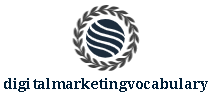What is Digital Marketing? Exploring the Online Advertising Landscape
Digital marketing encompasses the strategies and tactics businesses employ to market products and services through digital channels. In an age where the majority of consumers are online, digital marketing offers organizations an opportunity to engage with potential customers in a targeted and interactive manner. This form of marketing relies heavily on the use of technologies including social media, search engines, email, websites, and mobile apps to connect with audiences.
The crux of digital marketing lies in its ability to facilitate personalized and direct communication with individuals, encouraging a more refined approach compared to traditional marketing methods. Marketers can track responses and measure the success of campaigns in real time, which allows for data-driven decision making and nimble marketing strategies. Additionally, digital marketing not only aids in customer acquisition but also plays a critical role in building brand loyalty and nurturing long-term customer relationships.
Key Takeaways
- Digital marketing is a vital way for businesses to connect with consumers online.
- It enables personalized communication and incorporates various technologies.
- Real-time tracking and data analysis are pivotal for successful digital campaigns.
Digital Marketing Fundamentals
In this section, we'll discuss the essential elements of digital marketing, covering its definition, scope, and the advantages it offers.
Definition and Scope
Digital marketing encompasses a broad range of activities that leverage digital technologies to communicate with and engage audiences. It is the practice of promoting products, services, and brands through various online platforms such as websites, social media, email, and mobile apps. The scope of digital marketing includes a variety of strategies and channels, each serving unique functions in a marketer's toolkit. These strategies often include:
- Search Engine Optimization (SEO): Enhancing website visibility in search engine results.
- Pay-Per-Click (PPC) Advertising: Paid ads that cost marketers each time someone clicks on them.
- Content Marketing: Creating valuable content to attract and retain a target audience.
- Social Media Marketing: Using social platforms to reach and engage with users.
- Email Marketing: Directly marketing to potential customers through electronic mail.
- Affiliate Marketing: Partnering with others to promote your products for a commission.
- Influencer Marketing: Collaborating with influential individuals to promote products or services.
Importance and Benefits
Digital marketing is crucial for businesses as it allows for a wider reach and the ability to target specific audiences with precision. The benefits are substantial and measurable, making it a vital component of modern business strategies. Key benefits include:
- Cost-Effectiveness: Digital marketing often requires a lower budget compared to traditional marketing channels.
- Measurability: The success of digital campaigns can be tracked and analyzed with precision.
- Customization: Marketing messages can be personalized, enhancing the customer experience.
- Flexibility: Campaigns can be quickly adapted in response to data and audience behavior.
- Engagement: Digital channels allow for two-way communication, fostering better engagement.
By utilizing digital marketing, businesses can effectively engage with current customers, reach new audiences, and achieve their marketing goals with efficiency and impact.
Digital Marketing Strategies
In digital marketing, our strategies are designed to interact with target audiences through various digital channels and devices. We focus on driving engagement and conversions that contribute to the growth and success of a business.
Content Marketing
In content marketing, we create and distribute valuable, relevant, and consistent content to attract and engage a clearly defined audience. This typically involves blog posts, videos, infographics, and whitepapers aimed at drawing in prospects.
Search Engine Optimization
Our search engine optimization (SEO) strategy enhances the visibility of a website in search engine results pages. We focus on keywords, backlinking, and quality content to improve rankings and drive organic traffic.
Social Media Marketing
Social media marketing utilizes platforms like Facebook, Twitter, and Instagram. We create and share content that encourages interaction and promotes our brand, products, or services to a wider audience.
Email Marketing
With email marketing, we directly contact a list of subscribers through newsletters or promotional campaigns. We use segmentation and personalization to target messages effectively.
Mobile Marketing
Mobile marketing involves reaching out to our target audience on their smartphones or tablets. We optimize websites for mobile, create mobile apps, or conduct SMS marketing campaigns to engage mobile users.
Affiliate Marketing
In our affiliate marketing setup, we collaborate with individuals or companies to promote our products. They earn a commission for every sale made through their referral links, leveraging their audiences for mutual benefit.
Pay-Per-Click Advertising
Our pay-per-click (PPC) advertising strategy allows us to place ads on search engines and other platforms. We pay a fee each time one of our ads is clicked, which is an effective way to drive targeted traffic to our sites.

 EN
EN DK
DK SR
SR DE
DE FI
FI